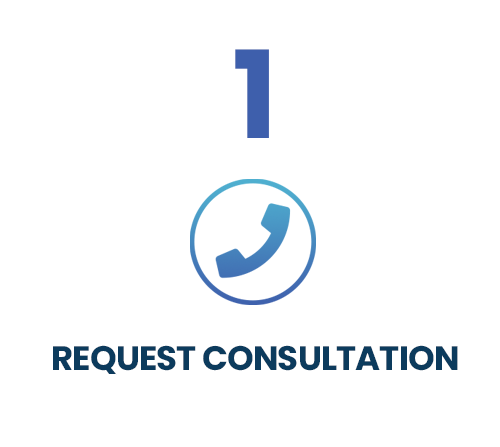It feels good to be on top of your industry, but you didn’t get there because you’re lucky. All of your success is derived from a determination to dominate your competition and grow your business. The road to success is filled with perils, but you’ve subsisted through the trials and tribulations to reach the top of your industry. And guess what? It’s only just the beginning.
Once you attain success, your next goal is to maintain it at all costs. As we’ve seen over the last few years, unexpected occurrences can derail a business virtually overnight. Without an effective marketing strategy, a business can come and go as quickly as the seasons. But there’s good news: by examining the collapse of other famous companies with irreparable brands, you can avoid those mistakes and keep your brand on the right track toward future success.
United Airlines
What Happened: A male passenger was literally dragged from his seat by two airport security officers on an overbooked plane departing from Chicago O’Hare International Airport. Unfortunately for United, cameras were rolling when the incident took place, and the dispute quickly went viral. The video, which showed a distressed man with blood on his face and mouth screaming for help as he was forced from the plane, disturbed viewers nationwide and quickly lead to protests and backlash against the almost one-hundred year-old company.
The Result: United’s stock dipped 4 percent in the days following the highly publicized incident and nearly $1 billion vanished from the company’s market value. CEO Oscar Munoz announced new preventative strategies to quell future conflicts including increased monetary incentives to leave an overbooked flight, reduced overbooking, additional employee training, and limited paperwork for lost luggage reimbursement. However, these reparations were unable to lift United from its low ranking in customer service satisfaction among airlines. United Airlines earned a 70 out of 100 on the 2017 American Customer Satisfaction Index, which is five points below the average score of 75.
The Lesson: Your company is always being watched, so there’s very little space for lapses in judgment. All of your employees should be familiar with your company’s brand, mission statement, and code of conduct. One bad apple, even in a minor role in your company, can cause irreparable damage to your brand. This catastrophe resulted in a major public relations crisis that was only compounded by what many viewed as a disingenuous apology on behalf of CEO Oscar Munoz. The United Airlines fiasco also serves as a cautionary tale for the power of viral video and social media content. Bad news tends to spread even faster than good news, so your company should always remain cognizant of how it is being portrayed internally and externally online, and especially on social media.
Sprint
What Happened: Although Sprint once kept stride with other major telephone companies like AT&T and Verizon Wireless, the company’s inferior customer service infrastructure and inability to adapt to a changing market has caused it to fall behind its competition. There were once two tiers of telephone service providers. The first tier was mainly composed of companies like the aforementioned AT&T and Verizon Wireless that offered monthly contracts on two-year service agreements. The second tier included prepaid or no-contract service providers like MetroPCS (now just Metro) and Cricket. Then something changed: companies like AT&T started offering both, despite already possessing stock in prepaid service providers who were piggybacking off their cell towers. Sprint didn’t know what to do. With lackluster service and an ineffective brand that failed to land with customers, the company’s leading executives found themselves in a poorly defined niche with no clear target audience.
The Result: On a poll conducted by Zogby and 24/7 Wall St., 44 percent of respondents reported a negative customer experience with Sprint. Among the 150 companies listed in the survey, Sprint had the fifth largest share of negative customer feedback. This was a significantly higher share than other mobile telephone companies like AT&T, T-Mobile, and Verizon Wireless. In addition, RootMetrics, a wireless network performance insight company, ranked Sprint behind all competitors in speed and data, arguably two of the most important considerations for customers shopping for wireless plans. Sprint didn’t rank well in calling, texting, and overall reliability either. The struggling brand ranked second to last in all three of these important service areas.
The Lesson: Technology is important, and if you aren’t willing to invest in the next wave of innovation, your business will quickly grow stagnant as it finds itself unable to compete. Sprint, a company whose brand is closely entwined with technology, failed to capitalize when new technology changed their market, and their brand suffered as a result. Our agency is vigilant of important changes in digital technology that will affect your online rankings, visibility, and traffic. We prime your business for success in advance so we can continue to implement changes to your digital marketing strategy to future-proof your business.
Equifax
What Happened: Equifax fell victim to one of the largest data breaches in history in 2017. Blackhats infiltrated the Equifax servers between May and July of 2017, amassing an enormous trove of personal data including driver’s license numbers, Social Security numbers, and birthdays. The information of more than 145 million Americans was vulnerable to the hack. Equifax’s lackluster handling of the incident, including the baffling decision to announce the breach over a month after it occurred, outraged Americans and proved that legislation concerning the protection of users’ personal data was outdated, weak, and in need of revision or replacement.
The Result: The consumer credit reporting agency made it easy for users to find out if they had been affected by the hack or not by simply logging on to their site and filling out a form, but people were not thrilled about the lack of help they were receiving. First, they needed to visit a website and submit information to a company that had just bungled the security of their information. Second, Equifax required consumers to not join a class-action lawsuit if they wanted to see if their information had been hacked. Lawmakers have done very little to prevent another incident like this from happening again.
The Lesson: Security is vital to the success of every business. In order to retain customers and find new ones, you need to have a way of reaching them. Personal data is the key to building strong connections with customers and clients, but if you don’t have the digital infrastructure in place to keep this information safe, your business will be hard-pressed to keep those customers happy. For instance, there’s never been a more vital time to invest in an SSL certificate for your website. This certificate encrypts data on your website to ensure that it can’t be accessed by the wrong users. At Leverage Digital, we’re outfitting all of our clients with free SSL certificates as a stopgap solution for their online security needs, but we’ll also be offering extended coverage using paid SSL certificates that feature significant upgrades like liability protection, multi-domain certification, superior server compatibility, and more.
Growing your brand and dominating your competition is easy when you partner with an award-winning digital marketing agency like Leverage Digital. We understand that success is something you have to earn, and we’re constantly working to ensure that our clients are positioned at the top of their industry. We customize digital marketing strategies to help you connect with more customers, carve out a niche for your business, and achieve your growth objectives with measurable results.





